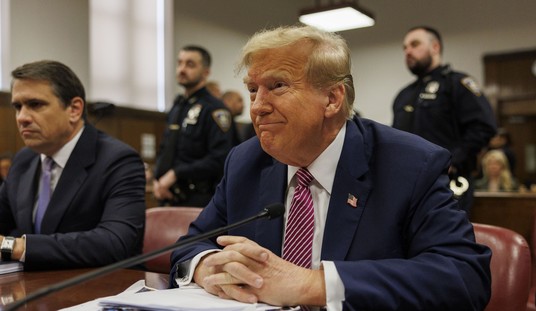Want to see an exit poll of the District of Columbia after tonight’s election? Well, okay, no one will need an exit poll for DC, but what about getting the demographics of turnout in Tennessee, or Vermont? You’re out of luck … again. For the second presidential election in a row, the broadcast networks have narrowed the field of exit polling, this time by 22 states they see as non-competitive in presidential or Senate races:
The consortium of news networks that commissions election exit polls will survey 28 states on Tuesday, eschewing state-level polls in many smaller and less-competitive states.
In recent elections, the National Election Pool — which includes The Associated Press, ABC News, CBS News, CNN, Fox News and NBC News — and Edison Research, which conducts the exit poll, have eliminated state-level surveys in an effort to cut costs. In 2012, there were 31 state-level exit polls, with exit pollsters skipping 19 states, plus the District of Columbia.
Some exit polling will take place in all 50 states and DC to allow for a solid enough national sample for the presidential election, but not enough for a solid sample in the states themselves. Politico reports the list of states that got left out in the cold:
- Alabama
- Alaska
- Arkansas
- Connecticut
- Delaware
- District of Columbia
- Hawaii
- Idaho
- Kansas
- Louisiana
- Maryland
- Massachusetts
- Mississippi
- Montana
- Nebraska
- North Dakota
- Oklahoma
- Rhode Island
- South Dakota
- Tennessee
- Vermont
- West Virginia
- Wyoming
Texas didn’t get an exit poll in 2012, when 19 states got the freeze, but it’s back in place this year — perhaps thanks to the closer polling seen over the course of the presidential election. There’s really no other reason for the change; in 2012, Texas had a seat open for the Senate that Ted Cruz wound up winning, but this year neither seat is up for grabs. California will get the full exit-poll treatment despite not being at all competitive in the presidential race, and their Senate seat will go to one of two Democrats who made it out of their all-in primary system. Granted, these two states have large populations, but so does Massachusetts, which ended up getting left out of the exit polling for statewide consideration. Other than cost considerations, there doesn’t seem to be much rhyme or reason to these exclusions.
Remember this when media outlets begin to report on “early exit poll data,” as they will beginning in the mid-afternoon. Early exit polls are in fact meaningless, because (a) they’re incomplete, and (b) they’re not designed to be a predictive model anyway. Exit polls work best as an explanation of what happened after the votes have been counted, and need to be remodeled based on actual voting data to do so. They give a good snapshot of demographics and trends, especially compared to previous years — which these exclusions will make a little less reliable, by the way — but not as a running total of who’s winning the race at every hour. Even the demos when first released will only be rough estimates, so unless the gaps are yuuuuuuge when the polls close, it’s not safe to draw absolute conclusions from them. Besides, the count of the actual ballots will only be an hour or two away, so why jump the gun with incomplete and indirect data when direct data will arrive soon enough?








Join the conversation as a VIP Member